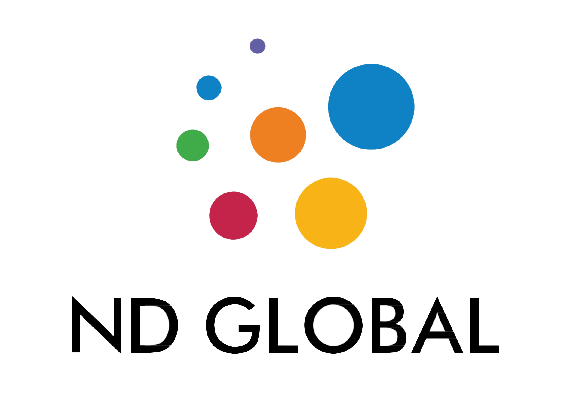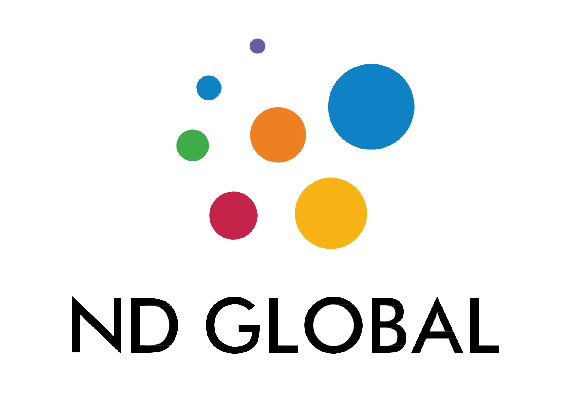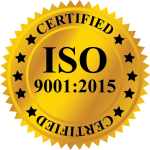Artificial Intelligence (AI) integration is emerging as a game-changing solution for healthcare recruiting as the sector deals with changing labor-management issues. Shortages of personnel have been a major issue for the healthcare sector in recent years. Numerous factors, such as an aging population, a rise in the demand for healthcare services, and a shortage of skilled personnel, have made this problem worse. According to a study, there will be a shortage of healthcare workers in 2024 since almost 6.5 million U.S. healthcare professionals will retire permanently by 2026, and just 1.9 million will take their place. Over 4 million workers will be in short supply nationwide as a result of this. By 2031, the Association of American Medical Colleges predicts that there will be 124,000 fewer physicians in the workforce. The U.S. Bureau of Labor Statistics projects that by the same year, there will be an even worse shortfall of nurses—200,000 fewer than in the previous year. Artificial intelligence (AI) and technology adoption, however, can offer answers to these persistent problems. By tackling staffing shortages and improving patient care, these cutting-edge tools have the potential to completely transform the way healthcare is delivered.
AI: What is it? The goal of artificial intelligence (AI) is to build computer systems that are capable of activities that resemble those of human intellect, such as language comprehension, decision-making, and learning. Artificial intelligence (AI) is utilized in the healthcare industry for tasks including data analysis and diagnostic support to enhance patient care and operational procedures.
AI in Healthcare Hiring and Recruiting: The use of artificial intelligence (AI) technology to improve and expedite the employment process in the healthcare sector is known as AI in healthcare recruitment. By using intelligent automation to replace manual processes, this strategy addresses issues including biases, inefficiencies, and a lack of labor. AI-driven tools bring features like resume parsing, predictive analytics, and chatbots to platforms like Vendor Management Systems (VMS) and Applicant Tracking Systems (ATS). AI improves diversity, equality, and inclusion (DEI) in healthcare hiring by identifying, evaluating, and hiring the best applicants through the use of machine learning and data analytics.
AI Applications for Hiring in Healthcare:
- Making job descriptions and advertisements more effective: In the recruitment process, writing job descriptions and ads by hand can take a lot of time, but it’s an essential step in drawing in the proper applicants. Writing compelling job descriptions is essential to getting candidates to apply. By examining publicly available data to determine the most effective keywords and phrases to use in job postings and adverts, generative AI speeds up this process. Recruiters may effortlessly connect job descriptions with the interests and expectations of potential candidates by optimizing them with AI’s help. Adapting job descriptions to match the tastes and expectations of potential candidates not only saves important time but also greatly boosts the chances of recruiting the appropriate talent.
- Locating Possible Eligible Applicants: It can be difficult to find qualified people quickly for healthcare recruitment. Biases frequently creep in, and a sluggish decision-making process makes it difficult to identify competent applicants. For a single function, traditional approaches can need 13 hours of sourcing. AI can speed up this process by rapidly identifying individuals who have the potential to succeed in particular roles by effectively sorting through large numbers of candidates. By using historical data and the database of a health system, artificial intelligence (AI) finds perfect matches based on previous contacts, expediting the process of finding qualified candidates. Additionally, AI can increase the number of candidates by searching the internet for suitable matches and using predictive analytics to pair applicants with specific job requirements and organizational needs. The accuracy of candidate selection is improved by this data-driven method, which represents a major leap in healthcare recruitment strategies.
- Precisely shortlisting and screening: Creating a fair and impartial shortlist of candidates can be a difficult undertaking in the healthcare recruitment process. The hardest part of hiring, according to 52% of talent acquisition executives, is finding the perfect person from a large pool of applicants. Furthermore, it takes a recruiter around 23 hours of work to make a single hire when manually screening candidates. This is a very time-consuming aspect of the hiring process. The fact that a startling 75–88% of resumes submitted are rejected as unqualified makes this much harder. Recruiters can focus on more important activities since AI can automate resume screening and effectively match candidate qualifications and experience with job criteria, saving them time. AI-powered technologies are excellent at sorting through hundreds of applications and selecting the best applicants based on their backgrounds and skills. In the end, this contributes to a more accurate and efficient healthcare recruitment process by guaranteeing a full examination of candidate qualifications and saving recruiters important time.
- Holding and Arranging Interviews: Artificial intelligence (AI) is a key player in revolutionizing the interview process by tackling issues including human biases and the labor-intensive manual tasks involved in scheduling, questionnaires, and team feedback. By integrating AI, the interview process may be standardized so that all candidates are assessed using the same standards and inquiries. AI-powered technologies can create excellent interview questions and analyze answers to find trends, giving recruiters insightful information. Additionally, these systems simplify interview scheduling by automatically sharing interview openings, synchronizing calendars with candidate communication tools, and promoting effective interviewer coordination. HR departments in the healthcare industry can improve the impartiality and effectiveness of candidate assessment by utilizing AI’s capabilities during interviews.
- Simplifying Internal Procedures and Improving Interaction – Hiring teams may lose out on qualified prospects as a result of laborious procedures. AI expedites these internal procedures, automating timekeeping and other administrative duties, as well as resolving communication issues that frequently cause hiring teams to lag. AI-powered solutions are excellent at organizing workflows, outlining future actions, and increasing the hiring process’s general effectiveness. Moreover, with the requirement for quick and easy interactions with candidates, effective communication continues to be a major difficulty in the healthcare recruitment process. One effective way to get around these obstacles is to use chatbots. By managing standard responses to applicants and candidates, such as thank-you notes, chatbots are essential in expediting candidate communication. Chatbots are made to quickly answer candidates’ questions and provide a smooth, responsive experience. In addition to saving recruiters a great deal of time, this improves the applicant experience in general and guarantees a more effective and user-friendly interaction throughout the hiring process.
- Predictive Staffing and Optimal Scheduling – The efficient scheduling of human resources is a crucial factor that greatly impacts the operational efficiency of the healthcare industry. In this sense, integrating AI could be beneficial since it can be used to generate staffing schedules that are ideal and forecast staffing demands with precision. AI may evaluate past data to forecast future employment needs by utilizing machine learning (ML). This allows for proactive planning to guarantee there are enough personnel available.
AI’s advantages in healthcare hiring:
- Enhanced productivity and time savings: Recruiters experience a major improvement in productivity and time savings when repetitive operations in talent acquisition procedures, such as interview and resume screening, are automated. This enables them to concentrate on developing rapport with applicants and taking care of more tactical elements of hiring.
- Improved Candidate Experience: AI-powered solutions facilitate a smooth application process, prompt feedback, and individualized communication, all of which enhance the candidate experience. A satisfying experience builds the company’s employer brand in addition to drawing in top talent.
- Better Diversity and Inclusion: AI may lessen unconscious prejudice throughout the recruiting process, which would result in more inclusive and varied hiring practices. AI helps find applicants based on merit by emphasizing abilities and qualifications, which promotes a more equal workforce.
- Greater Alignment with Organizational Goals: Artificial Intelligence (AI) identifies applicants who not only have the necessary capabilities but also share the organization’s values, mission, and long-term goals. This allows talent acquisition efforts to better match with organizational goals. The workforce will contribute to the overall success of the healthcare organization thanks to this strategic alignment.
- Proactive Strategic Hiring: Reactive backfilling is no longer necessary thanks to the application of AI in proactive and strategic hiring methods. In the end, this promotes a favorable candidate experience and lowers turnover rates, which helps to stabilize the workforce over the long run.
Conclusion – The integration of artificial intelligence (AI) in healthcare recruiting stands poised to revolutionize the industry’s approach to addressing persistent staffing shortages and improving patient care. With the looming shortfall of healthcare professionals predicted in the coming years, AI offers a game-changing solution by streamlining recruitment processes, enhancing productivity, and fostering better alignment with organizational goals. By enhancing the candidate experience, promoting workforce diversity, and aligning talent acquisition efforts with organizational objectives, AI not only addresses current labor management challenges but also paves the way for a more efficient, effective, and sustainable healthcare recruitment ecosystem. As the healthcare sector continues to evolve, the integration of AI promises to be a vital component in shaping the future of healthcare delivery and workforce management.
ND Global, a leading provider of AI-driven solutions, can play a significant role in revolutionizing healthcare staffing through its innovative technologies and expertise. Here’s how ND Global can help:
- AI-Powered Recruitment Platform: ND Global offers an advanced AI-driven recruitment platform tailored specifically for the healthcare sector. This platform leverages cutting-edge AI algorithms to streamline the entire recruitment process, from job posting to candidate selection, significantly reducing time and effort for recruiters.
- Customized Job Descriptions and Advertisements: ND Global’s AI algorithms analyze job requirements and candidate preferences to generate customized job descriptions and advertisements that resonate with potential candidates. This ensures that job postings are effective in attracting the right talent.
- Candidate Sourcing and Screening: ND Global’s AI-powered platform efficiently identifies and screens potential candidates based on their skills, experience, and qualifications. By leveraging predictive analytics and machine learning, ND Global can accurately match candidates with specific job requirements, saving recruiters valuable time and resources.
- Interview Automation and Coordination: ND Global’s platform automates the interview scheduling process, synchronizing calendars and coordinating interviews with candidates seamlessly. AI algorithms analyze candidate responses during interviews, providing recruiters with valuable insights to make informed hiring decisions.
- Diversity and Inclusion Initiatives: ND Global is committed to promoting diversity and inclusion in healthcare recruitment. Its AI algorithms are designed to minimize unconscious biases and ensure fair and equitable candidate selection, contributing to a more diverse and inclusive workforce.
- Predictive Staffing and Optimal Scheduling: ND Global’s AI-powered platform helps healthcare organizations forecast staffing needs and optimize scheduling to ensure adequate coverage and operational efficiency. By analyzing past data and trends, ND Global enables proactive planning and resource allocation.
Overall, ND Global’s AI-driven solutions offer a comprehensive approach to healthcare staffing, addressing the challenges of labor shortages and improving patient care. With ND Global’s expertise and technology, healthcare organizations can transform their recruitment processes and build a more resilient and sustainable workforce for the future.










